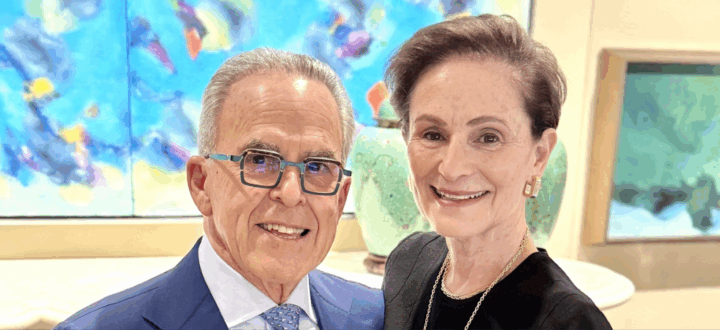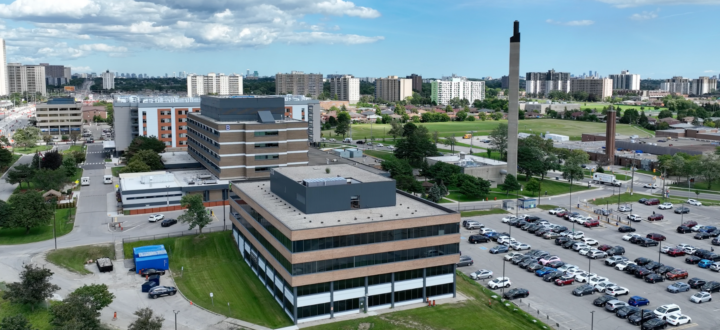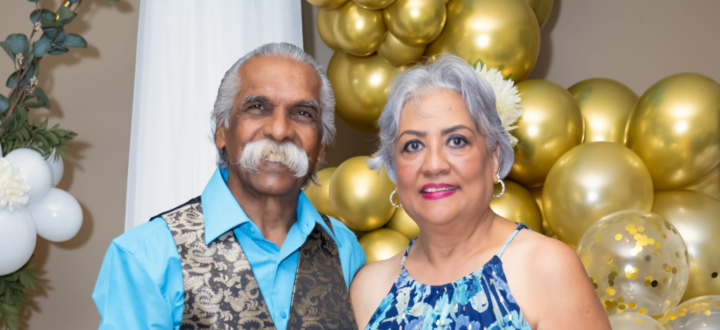Interview: Umwali Sauter, Manager of Equity and Inclusion
Tell us a little about yourself
My name is Umwali Sauter and I am the Manager of Equity and Inclusion at Humber River Hospital. I’ve worked with Humber since my role was created in 2018.
How would you explain your job to a friend?
We live in a society where there are structural barriers such as systemic racism, and these barriers are invariably embedded in how institutions run – including in healthcare. (For example, the College of Family Physicians of Canada reported that Indigenous patients experience racism or lower quality care due to racism, with prevalence rates of 39 per cent to 78 per cent, and the Black Health Alliance reports that Black women are 43% more likely to die from breast cancer than White women (Marc Hurlbert, phD, Chief Mission Officer, Breast Cancer Research Foundation))
My job is to identify equity and inclusion barriers, and then engage the staff, physicians, and volunteers on strategies to close the gaps. From this we create an Equity and Inclusion Framework containing concrete action plans to address those gaps. Humber’s values are compassion, professionalism, and respect – so our objective is to uphold those values as we undertake the difficult process of redesigning our systems to be more equitable.
These systems changes could include things like collecting accountable disaggregated data and promoting representational hiring, particularly at the leadership level. One of my hopes for the future is that our Hospital can lead the way in establishing a supplier diversity program, working with local businesses that uphold a strong equity practice.
Ultimately, we want anyone who walks into our Hospital as staff, physician, volunteer, patient or family member to feel a sense of belonging. Employees should all feel they are being given fair opportunities, and patients and families should all feel they are receiving equitable healthcare services.
What makes you proud of our Equity and Inclusion at Humber?
Our staff have so much generosity of spirit! They show up for the needs of our patients and our community. Most recently, we realized that COVID-19 was exacerbating food insecurity in many households in our community. Staff generously donated to a local farm, Black Creek Community Farm, to provide emergency food boxes to struggling families. I want to acknowledge the undeniable impact it has made on the ground. There are many more examples where staff, physicians and volunteers went above and beyond their healthcare duties.
Hospitals have huge clout and a lot of data, and our work is going to be to keep asking What can we do differently? Where are the gaps? Humber River Hospital is currently connected to several grassroots tables, which helps us keep our ear on the ground in terms of our community’s needs. We are also part of the North Western Toronto Ontario Health Team’s Health Equity Committee, and our goal is to develop shared tools, processes and measures that would inform healthcare strategies working towards reducing health inequities and disparities.
How does the COVID-19 Pandemic intersect with Equity and Inclusion?
Data shows that pandemics hit structurally disadvantaged communities the hardest, and vulnerability can come from many factors like income, housing, education, employment, gender and racism. In Ontario, the first five healthcare workers to die from COVID-19 were all people of colour. Three of them were women, and all of them worked in essential services in relatively low-ranking positions (one environmental services staff person and four personal support workers). COVID-19 has not been the great equalizer that people have claimed it to be – In fact, it has amplified disparities.
Currently the Canadian health system does not collect disaggregated data, so we don’t always get the full picture when studies are reported, but we can see a correlation between income, race, gender and COVID-19 hotspots. Toronto Public Health reported that low income communities were hardest hit – the same communities where essential service workers do very important work with low wages such as PSWs, grocery store workers, cleaners, and more. These are members of the communities we serve at Humber River Hospital.
The Ontario Human Rights Commission has advocated for demographic data as a best-practice, which would support making informed decisions, particularly when it comes to population groups in shelters, jails, Indigenous and racialized people, homeless/under-housed and essential service workers in precarious or low-income jobs. We need responsive data to assist with better planning to identify risk of infection or transmission and deployment of mitigation measures.
Why is it important for Canadians to be part of the conversations and action dismantling racism?
The last two weeks were a wakeup call for many around the horrors of systemic racism. Many Canadians do not realize that exposure to racism creates daily stressors that have both mental and physiological effects on an individual, community and society. Racism is a public health issue. For example, research shows that racism can be correlated with poor health outcomes which in turn raises our healthcare costs.
At an organizational level, racism can affect a company’s bottom line by reducing productivity. When employees don’t feel welcome, accepted, appreciated, and valued it increases staff turnover, absenteeism, presenteeism, interpersonal conflict, bullying, harassment, and depression.
Racism reduces innovation. If we do not leverage diverse thinking and experience, we miss out on incredible ideas and opportunity.
Racism is bad for democracy and civic engagement. It limits communities’ full rights of citizenship, excluding them from important decision-making processes. This lays the foundation of systemic barriers.
Racism hurts.
What is one awesome thing you have done in the last year?
I have been more intentional about infusing collective healing and love in my social justice work. Thinking about and witnessing injustice takes an emotional, psychological and physical toll. To sustain my energy and stay hopeful, my circle of care helps to hold and see me through tough times.
Then tomorrow is another day and we march on.
What inspires you?
Inspiration is not a choice, but a necessary condition for the strength, courage and compassion needed to advocate for a just society.
I was born as a refugee and came to Canada as a refugee – which from an early age gave me a deep understanding for the value of community building. I witnessed generosity with very little and saw the impact a united front has to push for change.
I want to leave this world a just a little better than I found it.






